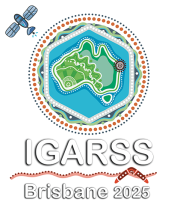Aug
3
Sun
Aug 3 @ 9:00 am – Aug 8 @ 5:00 pm

The International Geoscience and Remote Sensing Symposium (IGARSS) is the flagship conference of the IEEE Geoscience and Remote Sensing Society. The 45th IGARSS will be held in Brisbane from 3 to 8 August 2025.
The theme of IGARSS 2025 is ‘One Earth,’ and the symposium will address threats to our Earth and promote collaborative global solutions that use remote sensing technology. The event will have strong technical and social programs, and present opportunities for regional and global collaboration.
Topics to be covered include:
- The contribution of international standards for land cover and land use and guidelines for SDG reporting
- Advanced satellite remote sensing techniques for coastal hazard monitoring and risk prediction
- Advanced signal processing methods for geoscience and remote sensing applications
- Applications of remote sensing in urban climate and sustainability
- Calibration and validation of space-based imaging spectrometers during a growth era of hyperspectral data sources
- Close-range sensing of the environment
- Deep learning and remote sensing for rapid disaster response
- Earth observation foundation models
- Hyperspectral geoscience mapping in developing countries
- New satellite laser data for terrain modelling
- Quantum technology for remote sensing
- Space LiDAR: Missions, technologies, and observations
Subscribe to filtered calendar



